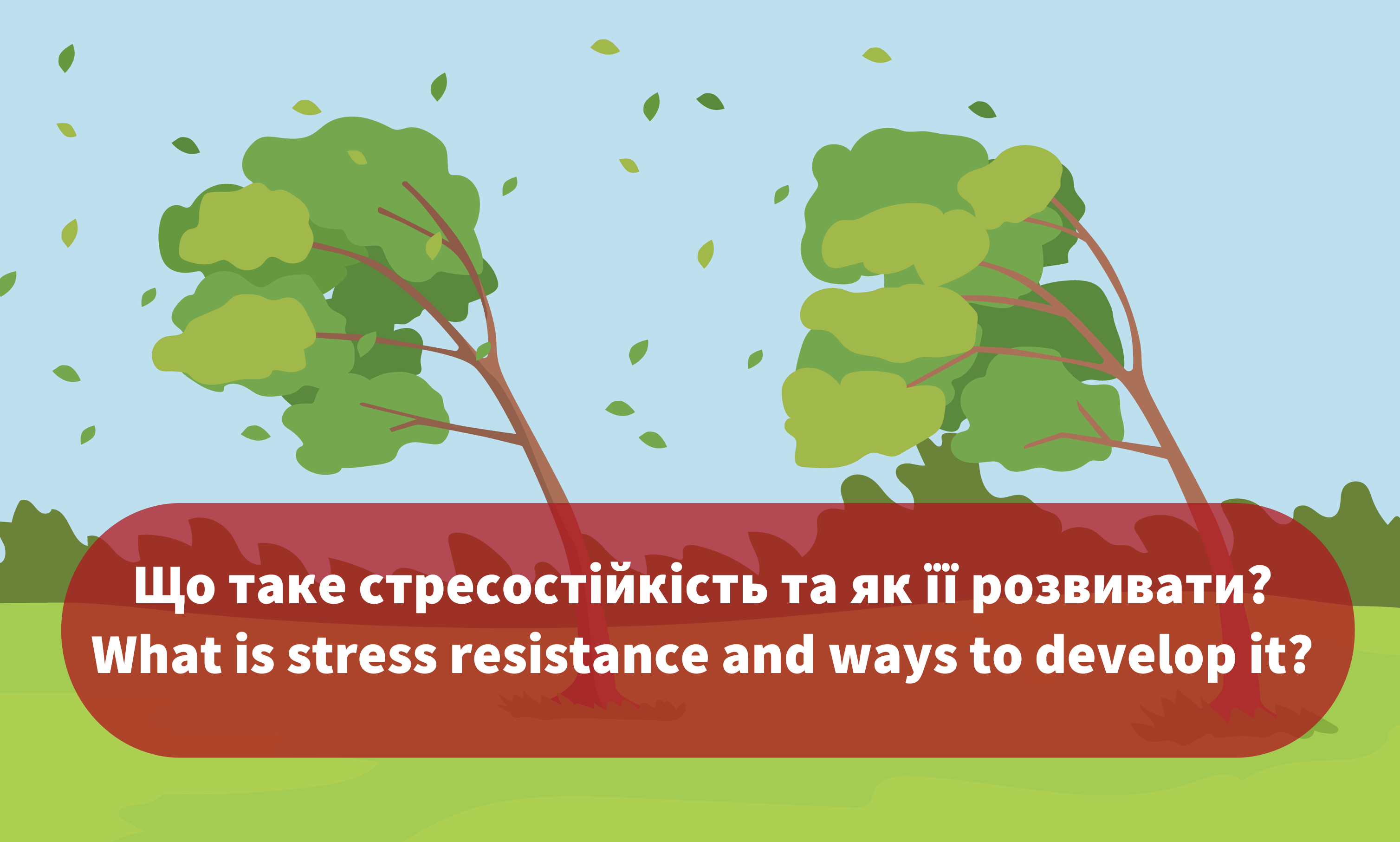What is stress resistance and how can it be developed?
Life is not always predictable. Sometimes we may encounter disturbing news, losses, disappointments, or difficulties at work or in our personal lives. And in times of conflict and crisis, even ordinary daily tasks can feel overwhelming. That's when stress resistance becomes especially important.
Stress resistance is an ability to cope with difficulties, adapt to change, and gradually restore our inner balance after experiencing stress. It's not about avoiding negative emotions or always being calm. It is about not losing ourselves completely, even in challenging moments, and finding the strength to live on.
When we are struggling, we may cry, feel afraid, or get tired — and that is normal. But stress resistance helps us return to our resources.
Imagine a tree during a storm. The branches of the tree may bend when the wind blows strongly. But the roots continue to hold it firmly in place. When the storm passes, the tree straightens up again and continues to bloom. During various life challenges, our stress resistance is our inner “roots” that help us stand firm, even when we are overwhelmed by anxiety, pain, or uncertainty.
The good news is that stress resistance is not something we either have or don't have. It is a skill that can be developed gradually. And you can start with simple things that are accessible to everyone.
1. Take care of your basic needs
Sleep, nutrition, movement, and rest are the core. When the body is exhausted, it becomes much harder to cope with stress. Even regular light meals, warm tea, or a short walk can serve as “anchors” that bring you back to a steadier state.
2. Recognize your emotions and needs
Being resilient does not mean being an “iron person. It is important to acknowledge your feelings: “I am scared right now. I am angry. I am sad. I am irritated.” Naming emotions instead of hiding them can reduce inner tension.
3. Communicate with people who support you
Even a short conversation with a friend or support from a colleague can give you a feeling of support and understanding. Sometimes it's just important to have someone listen without giving unsolicited advice or judgment.
4. Do things that give you a sense of control
When the world seems unstable, it's helpful to focus on small, manageable actions, such as tidying up a room, writing a to-do list, or doing something enjoyable.
5. Develop your inner resources
Meditation, breathing exercises, reading, creativity, or keeping a diary can all help strengthen your connection with yourself. This is not an obligation, but something you can explore.
6. Most importantly, remember it is okay to seek help
Sometimes it can be hard to cope on your own. Reaching out to loved ones, friends, or mental health workers is not a sign of weakness. It is a conscious step toward self-care.
If you are struggling or feel that your emotions are getting in the way of your life, you can access free qualified support from the Danish Refugee Council (DRC) specialists. The DRC's mental health and psychosocial support programme helps reduce emotional stress, improve well-being, and identify internal and external resources that can help you cope with difficulties during difficult times. Meetings are conducted by qualified and trained staff both online and in person.
Our toll-free number 0800 338 305 is available Monday through Friday from 9:00 a.m. to 5:00 p.m.. We provide in-person counselling in the Kharkiv, Donetsk, Dnipropetrovsk, and Mykolaiv regions.
